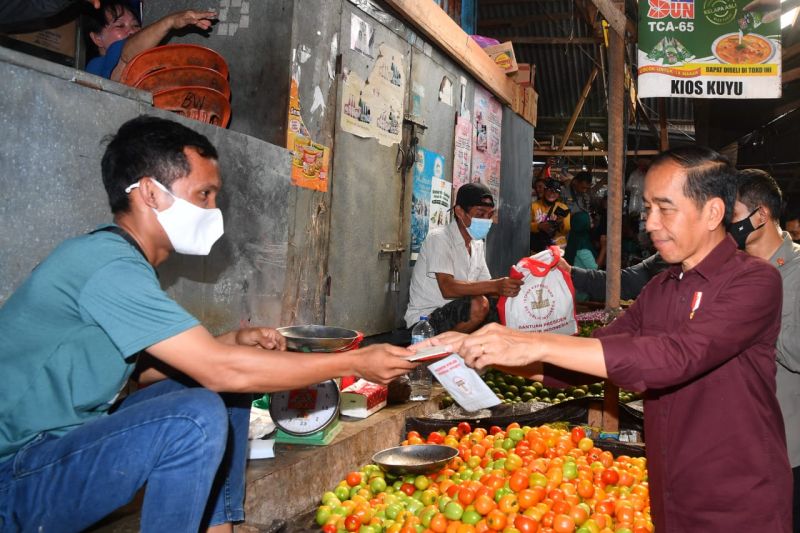I expect universities to add more thematic community service programs (geared toward) overseeing and assisting families that are at risk of having stunted children.
Jakarta (ANTARA) – The National Population and Family Planning Agency (BKKBN) has urged students participating in the thematic community service program (KKN) to work with family facilitator teams (TPKs) to reduce stunting in regions.
“I expect universities to add more thematic community service programs (geared toward) overseeing and assisting families that are at risk of having stunted children,” the agency’s head, Hasto Wardoyo, said here on Thursday.
Students who undergo thematic community service programs in the regions will be able to work with the family facilitator teams, which have been formed by the BKKBN, he added.
According to the Health Ministry’s 2021 National Family Profile data, the number of pregnant women reached 4,884,711 in that year. Meanwhile, the live birth rate was recorded at 4,438,141 and stillbirths at 22,257.
The data showed that assistance for families was deemed important.
To assist families, Wardoyo has dispatched at least 600 thousand personnel, who have been grouped into 200 thousand facilitator teams.
Each team comprises 3 people—a midwife, a member of the family welfare initiative (PKK), as well as a cadre of the family planning (KB) initiative. The teams are spread across Indonesia.
Tertiary institutions could also contribute to these efforts by following programs such as Freedom in Learning on Campus (Merdeka Belajar) and the Kedaireka funding platform.
The agency has also collaborated with the Rector Forum and the Education, Culture, Research, and Technology Ministry.
Universities have made an extensive contribution to efforts to reduce the national stunting rate, Wardoyo noted.
Through programs such as Merdeka Campus, students are expected to hone their skills and put their knowledge into practice.
“Stunting can happen because of poor health, malnutrition, and bad parenting styles. As a result, children are not tall, not smart, and not healthy. Preventing stunting is easier than resolving it; so students, through the thematic community service program, can facilitate pregnant women because there are so many of them,” he said.
Meanwhile, Chairperson of the National Association of Child Nurses (IPANI) Allenidekania said child development is influenced by both macro and micro nutritional factors, social culture, parenting patterns, and the environment.
Stunting can be prevented in the first 1,000 days of life through a multi-disciplinary approach and specific and sensitive interventions aimed at pregnant and postpartum women, 0–24 months old babies, and prospective couples.
Related news: BKKBN asks students to build awareness against early marriage
Related news: BKKBN invites santri to accelerate stunting reduction in children





































